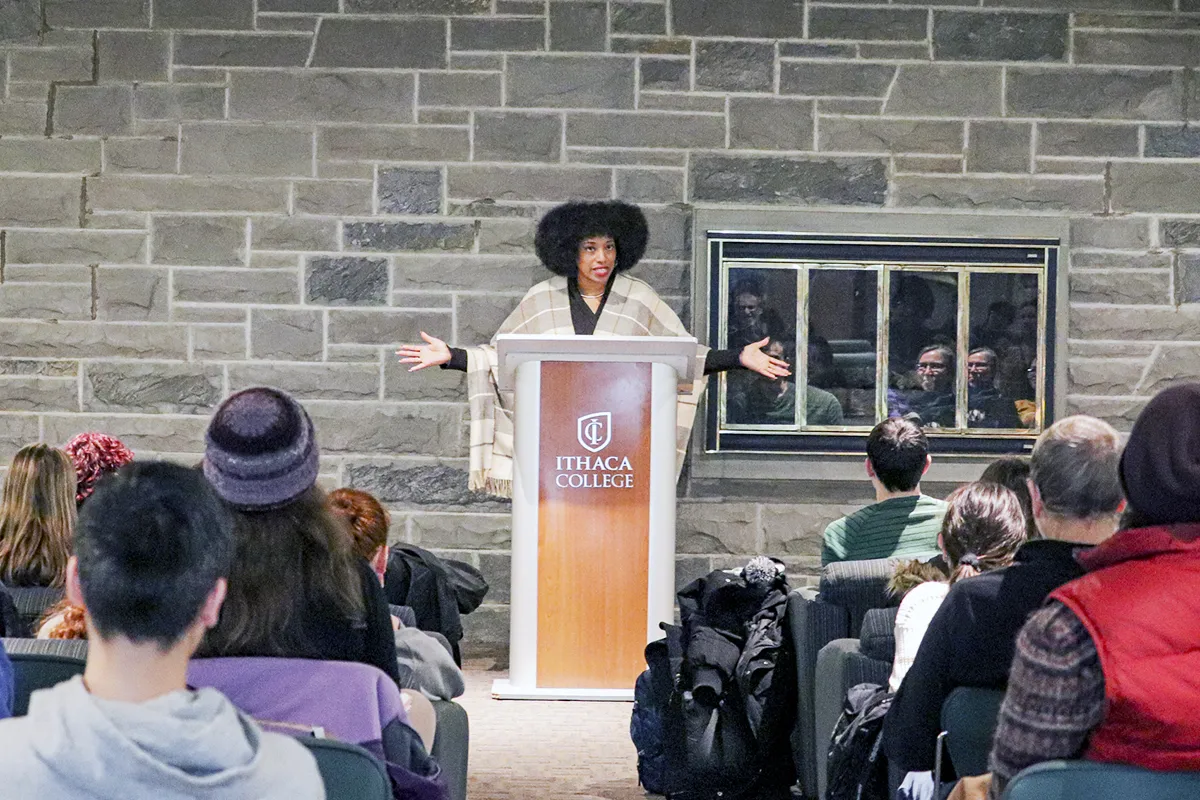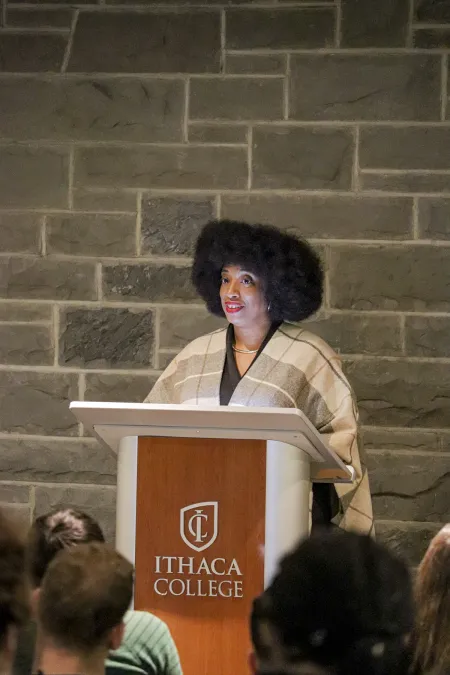Last week, Yavilah McCoy, a Black and Jewish educator and anti-racist activist, came to Ithaca College as part of the college’s Black History Month programming and as a part of Better Together Days, a week of interfaith action and engagement.
As a pioneer of the equity and inclusion movement, McCoy has been deeply involved in organizing for change and spreading her message. In 2017, she spoke to over 470,000 demonstrators at the Women’s March in Washington, D.C.
Sponsored by Hillel at Ithaca College, the Office of Religious and Spiritual Life, and the Center for Inclusion, Diversity, Equity and Social Change (I.D.E.A.S), McCoy took part in multiple events on campus. She facilitated a dialogue with faculty and staff members on the need to advance justice across interracial, intercultural and interfaith differences. McCoy also met with members of the college’s senior leadership team and facilitated a workshop for 15 student leaders.
On the evening of February 18, McCoy spoke to students and college community members about holding multiple identities and challenging their implicit biases, especially as it regards to their activism on and off campus.

